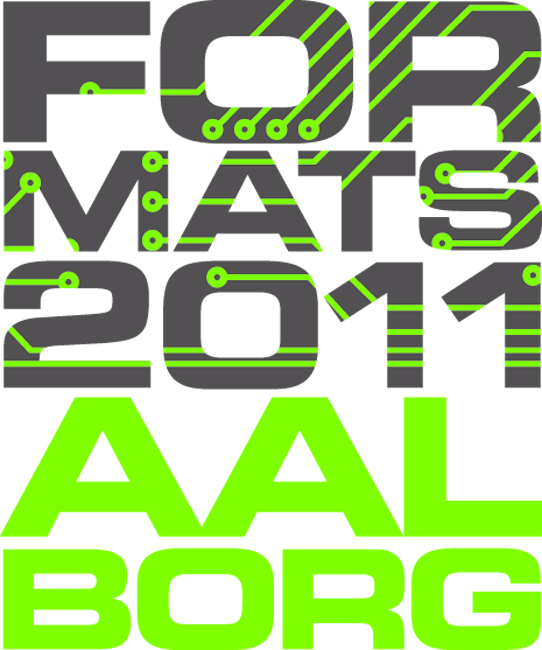FORMATS 2011
FORMATS 2011, the 9th International Conference on Formal Modeling and Analysis of Timed Systems, will take place at Phønix Hotel, Aalborg, Denmark, from 21 to 23 September 2011.
Invited Talks
Rajeev Alur, University of Pennsylvania, Philadelphia
Interfaces for Control Components
Boudewijn Haverkort, University of Twente, Enschede, and Embedded Systems Institute, Eindhoven
Formal Modeling and Analysis of Timed Systems: Technology Push or Market Pull?
Oded Maler, VERIMAG, Grenoble
Performance Evaluation of Schedulers in a Probabilistic Setting
Objective and Scope
Timing aspects of systems from a variety of computer science domains have been treated independently by different communities. Researchers interested in semantics, verification and performance analysis study models such as timed automata and timed Petri nets, the digital design community focusses on propagation and switching delays, while designers of embedded controllers have to take account of the time taken by controllers to compute their responses after sampling the environment.
Timing-related questions in these separate disciplines do have their particularities. However, there is a growing awareness that there are basic problems that are common to all of them. In particular, all these sub-disciplines treat systems whose behaviour depends upon combinations of logical and temporal constraints; namely, constraints on the temporal distances between occurrences of events. The aim of FORMATS is to promote the study of fundamental and practical aspects of timed systems, and to bring together researchers from different disciplines that share interests in modelling and analysis of timed systems. Typical topics include (but are not limited to):
- Foundations and Semantics: Theoretical foundations of timed systems and languages; comparison between different models (timed automata, timed Petri nets, hybrid automata, timed process algebra, max-plus algebra, probabilistic models, type systems).
- Methods and Tools: Techniques, algorithms, data structures, and software tools for analyzing timed systems and resolving temporal constraints (scheduling, worst-case execution time analysis, optimisation, model checking, testing, constraint solving).
- Applications: Adaptation and specialization of timing technology in application domains in which timing plays an important role (e.g. real-time software, hardware circuits, and problems of scheduling in manufacturing and telecommunication).
Read more at formats2011.cs.aau.dk
